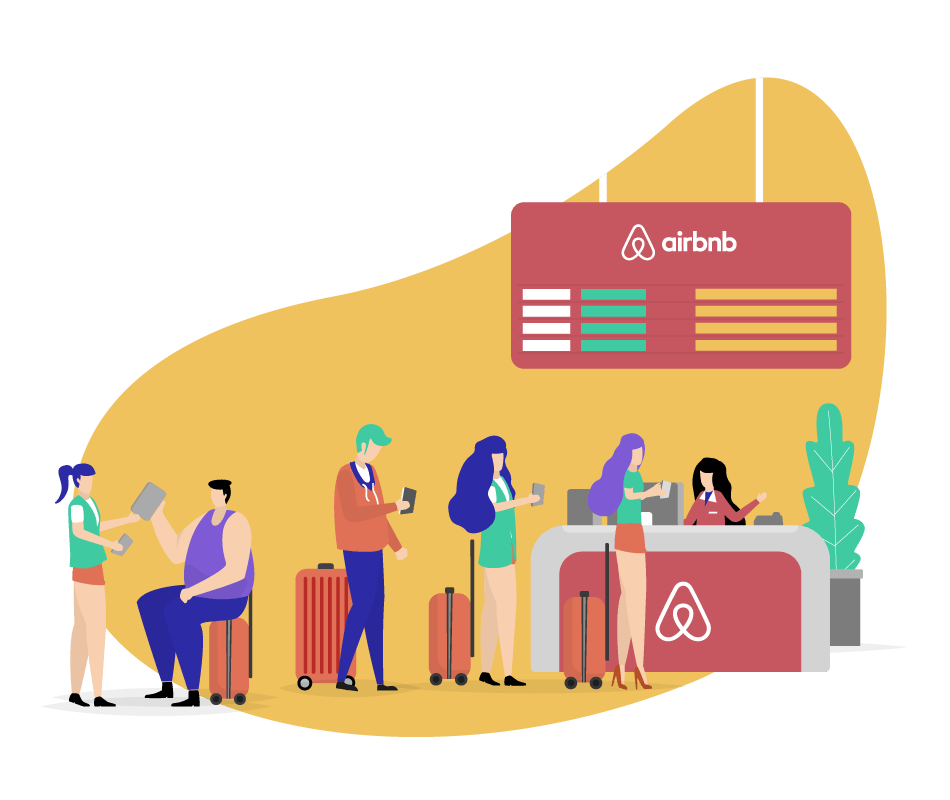Holidays and home offices are no longer incompatible with being on the clock, as contemporary forms of working become less reliant on a single physical place. For this reason, it’s not surprising that we’re seeing a shift towards long-term vacation rentals, with sites like Airbnb, Vrbo, and Booking.com placing more emphasis on such promotion for both hosts and guests. So, how can you take advantage of this trend in a way that works for you?
Quick note: Before we dive into maximizing your properties for long-term vacation rentals, let’s define what we mean by long-term. It’s always relative to each host or manager. Those who manage urban condos likely see long-term as seven successive days, whereas those in the cottage or beach house market probably think 14+ day stays. To make things simple, we’ll define long-term vacation rental by any stay that’s above seven consecutive days.
The new market for long-term vacation rentals
The holiday season is no longer the sole marketplace for vacation rentals. With more people choosing lengthy staycations and remote workers taking advantage of the flexibility to get a change of scenery, there’s a whole pool of potential customers across multiple channels in the long-term rentals game. Plus, with so many travel plans canceled in recent times, customers are taking comfort in the permanence of a longer stay, as guests opt to book an Airbnb for a month or even longer. As a result, longer-term vacation rentals are more appealing to hosts and holidaymakers alike.
The pros and cons of long-term vacation rentals
Shifting your focus onto long-term vacation rental guests isn’t a decision to be taken lightly. Longer vacation rentals might be here to stay, but whether it becomes part of your company offering will depend on how the pros and cons level with your business.
The upsides
- Reduce void periods and “orphan nights”: By renting out a vacation rental property for a month at a time, you’ll decrease the amount of time your property sits there empty between stays. Without a doubt, long-term stays are a great way to extract maximum value from your rental.
- Save money and time: Getting long-term guests means that you won’t have to spend all that extra time and money wrapping up one stay and preparing for the next. You’ll save on cleaning between shorter stays and cut down on admin via lower guest turnover. It’s truly a low-effort way to maximize the income return on your rentals—something that’s top of every host’s priority list.
- A more consistent stream of revenue: Opening up your rental to long-term guests means you can rely on a steadier stream of income, allowing you to better plan your finances throughout the year. Not only will that make your life as a property manager easier, but it’ll also make your business more robust and bullet-proof it against possible uncertainty.
The downside
- Less freedom to manage your rental: When hosting a long-term guest in an Airbnb for a month, you can’t stop by to do a quick maintenance check or go in to inspect the state of your property whenever you want. Your guests will have full access to the property for the length of their stay, so you’ll need to be comfortable with holding back on house checks.
- Getting to grips with new rules: Learning about the differences between short and long-term stays isn’t necessarily a disadvantage, but you will need to set aside a little time to do so. It’s a good idea to check out the local regulations concerning long-term Airbnb rentals in your area and fully familiarize yourself with them.
- Vetting your guests: Unlike short-term rentals, a more thorough check is vital when accepting guests into an Airbnb for a month or more. Having problematic guests in for weeks on end will wind up costing you more money and hassle than it’s worth. The good news is that it’s avoidable. Just ensure you know a bit about your guests before accepting them and make your property rules crystal clear.
Steps to get your property ready for long-term rentals
Once you’ve considered all the factors and decided to go ahead with making your property fit for long-term guests, you’ll need to think about how you can market your rental to be as attractive as possible. Making small improvements can make a world of difference and keep the five-star reviews rolling in.
Cater to ‘work-from-home’ guests
Chances are, guests in your long-term Airbnb rentals are going to have to work at some point. Decking out your rental with high-speed internet and a comfortable place to work could be the difference between getting put on the shortlist and getting booked for the long term.
Amenity improvements
Upgrading and adding to your amenities is a great idea, especially if you have traditionally dealt with short-term guests. Simple things like adding a washer/dryer to your long-term rental or ensuring the kitchen is fully stocked with cooking utensils are easy ways to ensure your rental is ideal for long-term stays. Logistically, making your property pet-friendly or adding a welcome pack to enhance check-in are other simple but effective ways to make your guest feel comfortable in their temporary home.
Guidebooks
Adding tips to your guidebook that cater to everyday habits rather than just tourist attractions can set your long-term Airbnb rental apart. Including your favorite coffee shop, your favorite park to go for a jog, or the best place to buy groceries are all great additions that’ll make your guest feel more like a local—something they’ll appreciate if they’re calling your rental home for a month or more.
Implementing a digital guidebook is a great step to take to streamline your recommendations and make them as accessible as possible. With places hand-picked by you as the host, they’ll also add an original touch to make your guest experience all the more memorable. Plus, extensive configurability means you can cater your guidebooks to different types of stays—be they short, mid or long-term trips.
Get set for the future of long-term rentals
The rise and popularity of long-term Airbnb rentals mean that they’re bound to be a key consideration for rental property managers in the future—but there are several specific factors to account for. If you think it could work for you and are willing to do your research, now is the moment to get on board and make your property ready for longer-term rentals.












